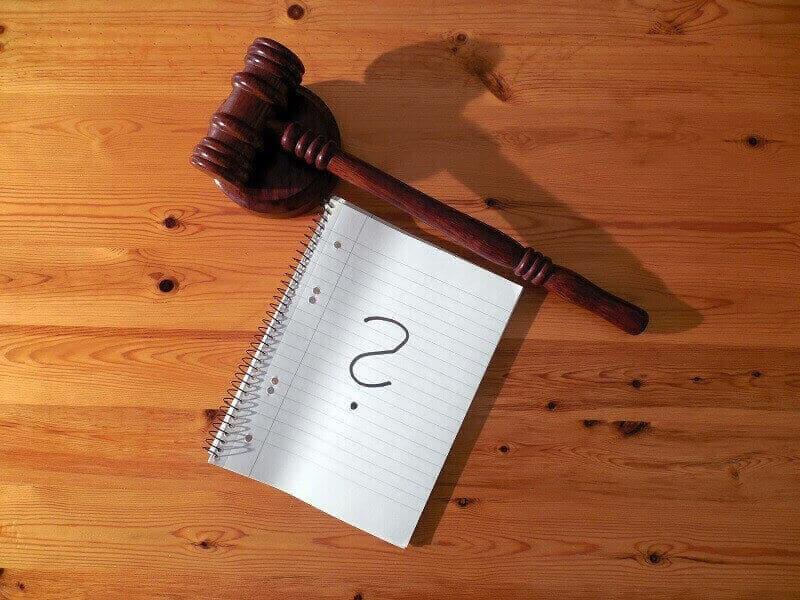Different Types of Falsification of Documents Punished
This article discusses the crime of Falsification of Private, Commercial or Legislative Documents, and Wireless, Telegraph or Telephone Messages.
The Crime of Falsification of Documents in the Philippines takes on many forms. Punished under the Revised Penal Code of the Philippines, there are many types of falsities involving documents that are punished criminally in the Philippines.
Falsification of Legislative Documents
The first, and least common form of falsification punished under the Revised Penal Code is called Falsification of Legislative Documents. Article 170 of the Revised Penal Code defines the crime of Falsification of Legislative Documents as an act whereby a person who, without proper authority alters a legislative bill, resolution, or ordinance, enacted or approved or pending approval by either House of the Legislature or any provincial board or municipal council.
Falsification of Wireless, Cable, Telegraph, and Telephone Messages
The second, and similarly uncommon type of falsification, is punished under Article 173 of the Revised Penal Code, as Falsification of Wireless, Cable, Telegraph, and Telephone Messages. The offender in this case is limited to any officer or employee of the government, or any officer or employee of any private corporation or entity engaged in the service of sending or receiving wireless, cable or telephone messages, who utters a fictitious wireless, telegraph, or telephone message of any system, or falsifies such wireless, cable or telephone message. This second type of falsification is uncommon, presumably due to the nature of the acts being punished. An example of an act which is punishable under this provision is the act of falsifying a telegraph. Thus, where a telegraph operator receives two (2) telegraphs for transmission, but alters the original tenor of the telegraph by omitting some or several words, the crime of falsification of telegraph messages is committed. (United States vs. Romero, 17 Phil 76.) It must be remembered that the Revised Penal Code of the Philippines was enacted long before the age of the internet and social media. Back then, messages could be relayed through traditional and non-digital transmissions, received by branches, relay stations, or by operators who are tasked to faithfully decode the transmissions received, and to transmit or relay the message in its original or unaltered form. On this day and age of social media and internet technologies, there is no longer any individual or natural person acting as an intermediary receiving, decoding and relaying a transmitted message to the recipient. On the contrary, messaging is direct, and often encrypted end to end.
Falsification of Private, Public or Commercial Documents
A more common type of falsification involves the commission of any of the following acts:
1. Counterfeiting or imitating any handwriting, signature or rubric;
2. Causing it to appear that persons have participated in any act or proceeding when they did not in fact so participate;
3. Attributing to persons who have participated in an act or proceeding statements other than those in fact made by them;
4. Making untruthful statements in a narration of facts;
5. Altering true dates;
6. Making any alteration or intercalation in a genuine document which changes its meaning;
7. Issuing in an authenticated form a document purporting to be a copy of an original document when no such original exists, or including in such a copy a statement contrary to, or different from, that of the genuine original; or
8. Intercalating any instrument or note relative to the issuance thereof in a protocol, registry, or official book.
The nature of the offense will depend on one (1) factor – whether the person that committed the act is a public officer, employee, or notary who, taking advantage of his official position, or a private individual.
Falsification Committed by a Public Officer, Employee, Notary
If the person committing any of the acts defined under Article 171 of the Revised Penal Code is a public officer, employee, or notary, then the higher penalty of prision mayor (in addition to a court imposed fine) is imposed. It must be noted that, to be liable, the act must have been done by the person, taking advantage of his or her official position.
On the other hand, if the person committing any of the acts defined under Article 171 is a private individual, then Article 172 of the Revised Penal Code applies, and the private individual is punished with the lesser penalty of prision, correccional (in addition to a court imposed fine) is imposed.
Falsification Committed by a Private Individual
On this note, Article 172 of the Revised Penal Code provides:
Art. 172. Falsification by private individual and use of falsified documents. — The penalty of prision correccional in its medium and maximum periods and a fine of not more than P5,000 pesos shall be imposed upon:
1. Any private individual who shall commit any of the falsifications enumerated in the next preceding article in any public or official document or letter of exchange or any other kind of commercial document; and
2. Any person who, to the damage of a third party, or with the intent to cause such damage, shall in any private document commit any of the acts of falsification enumerated in the next preceding article.” [Emphasis and underscoring supplied.]
Thus, to be liable, the private individual must have committed an of the falsities enumerated in Article 171, in a public or official document.
The determination of the type of falsification committed by a person depends on the type of document falsified.
While the Revised Penal Code did not give an exacting definition of what a public document is, vis-à-vis a private document, Section 19 of the 2019 Revised Rules on Evidence actually made a clear and categorical differentiation between the two (2):
Section 19. Classes of documents. – For the purpose of their presentation in evidence, documents are either public or private. Public documents are:
(a) The written official acts, or records of the sovereign authority, official bodies and tribunals, and public officers, whether of the Philippines, or of a foreign country;
(b) Documents acknowledged before a notary public except last wills and testaments;
(c) Documents that are considered public documents under treaties and conventions which are in force between the Philippines and the country of source; and
(d) Public records, kept in the Philippines, of private documents required by law to be entered therein.
All other writings are private.
Falsification of a Public Document
The most common type of public document is a notarized or consularized document. On the other hand, an official document is a document which is used by the government or any of its agencies or instrumentalities in the course of their official functions. Pleadings, court decisions and orders are likewise public or official documents. Public records and those that are considered under treaties as public documents, fall under such rubric. It must be noted that the distinction between a public and official document is largely academic, because for purposes of the Revised Penal Code, the penalty, mode of commission, and elements, are the same. If the document involved is either a public or official document, the crime committed by the offender is the crime of Falsification of Public or Official Document.
Belonging to a different class in itself, a private document is defined by way of exclusion. Every other type of document which is not public or official, is considered a private document.
Falsification of a Private Document
One thing that differentiates these two (2) classes of falsification of documents, is that in the crime of Falsification of a Private Document, it must be proven that the person committing the falsification did “so to the damage of a third party, or with the intent to cause such damage.” The element of damage, or intent to cause damage, must be proven beyond reasonable doubt, for a person to be liable for falsification of a private document. However, pecuniary injury, or profit by the person committing the falsification of a private document is not necessary. In the treatise of noted commentator on Criminal Law, Luis B. Reyes, citing case of People vs. Marasigan, it is said that damage caused to another need not be material injury, and that damage to one’s honor would satisfy the elements of the crime.
Penalties for the Different Classes of Falsification
As to their respective penalties, the crimes of Falsification of Private, Commercial or Legislative Documents, and Wireless, Telegraph or Telephone Messages are met with the common penalty of prision correccional or imprisonment ranging from six (6) months and 1 day to six (6) years. If the offender is a public officer, employee or notary or ecclesiastic minister, the penalty is prision mayor or imprisonment ranging from six (6) years and 1 day to twelve (12) years. These penalties are in addition to the fine that the law imposes on the offender.
About Nicolas and De Vega Law Offices
If you are a victim of a crime or need assistance in filing, proseucting or defending a criminal case, we can help you. Nicolas and de Vega Law Offices is a full-service law firm in the Philippines. You may visit us at the 16th Flr., Suite 1607 AIC Burgundy Empire Tower, ADB Ave., Ortigas Center, 1605 Pasig City, Metro Manila, Philippines. You may also call us at +632 84706126, +632 84706130, +632 84016392 or e-mail us at [email protected]. Visit our website www.ndvlaw.com.









